‘Life-changing’ scholarships awarded to future doctors committed to rural health care
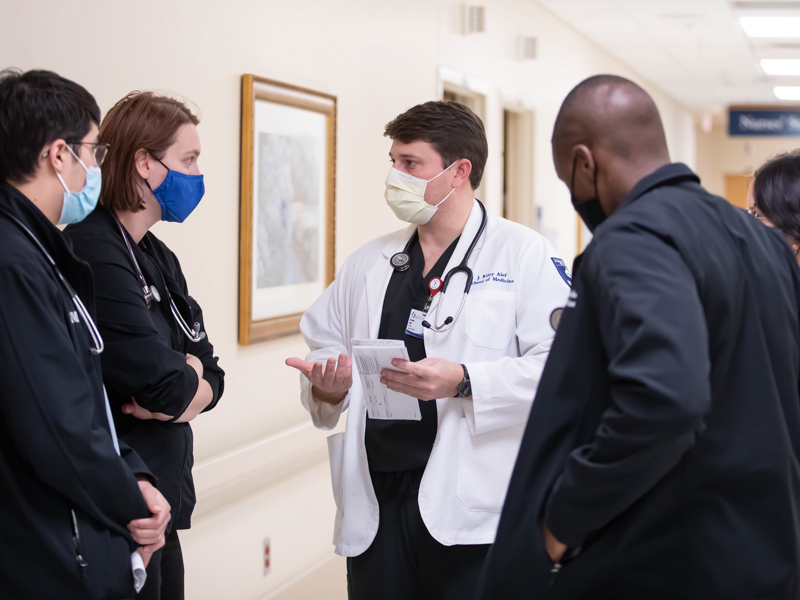
As a medical student, Riley Alef pictures himself sitting down with his future patients – in bleachers at Friday night football games, in pews shared on Sundays, at tables set with Sunday dinner.
He imagines himself in a place like the one where he grew up, in Mississippi, where everyone will know him, not only as their doctor, but also as their friend.
“I hope to go back there and practice, or at least get as close to New Albany as I can,” he said.
In fact, he has done more than state his hope; he has autographed it; Alef, 28, is one of eight medical students at UMMC who have pledged in writing to practice medicine for several years in rural communities of Mississippi, the places that need them the most.
The students are recipients of the first-ever IMPACT the RACE-sponsored scholarships – their reward for doing what many were going to do anyway: devote at least part of their careers to patients who have limited access to medical care.
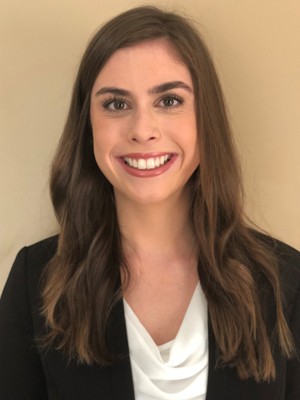
“This scholarship represents something beyond me,” said third-year medical student Olivia Grant, 25, of Gulfport, who is pondering a career in family medicine or pediatrics. “It represents a need; it shows that practicing in underserved areas is something worthwhile.
“It has to be a fulfillment, a calling, not just a job. It can be taxing, emotionally draining, but even more so in an underserved area; so you should truly know that’s what you want to do, that this is your purpose in life.”
The awards, which are retroactive, pay tuition and fees for four years of medical school. Each is worth $140,000.
“I can’t say the scholarship persuaded me to do rural medicine,” said Alef, who is engaged to be married in July.
“But that’s a pretty big relief and a blessing to potentially come out of these four years as close to debt-free as you can be,” said Alef, who also has a Master of Science degree in the biomedical sciences from the School of Graduate Studies in the Health Sciences at UMMC.
“It means you may be better able to invest your finances in your community or your clinic, and that gives you the means to provide your patients with even better health care.”
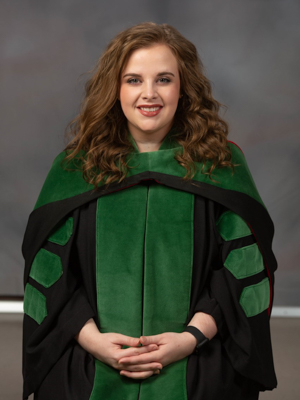
For M4 Leah Bowlin of Mendenhall, the scholarship is “huge. It’s the kind of money that’s life-changing. But it’s not really about the money, as important as that is.
“Its real importance is the purpose of the program: supporting those who are interested in primary care, in educating patients and in rural medicine.”
Dr. Loretta Jackson-Williams stressed that purpose during what amounted to a Signing Day last Wednesday in the School of Medicine, where six of the eight scholarship awardees were able to be on hand to put their names on a service-obligation contract.
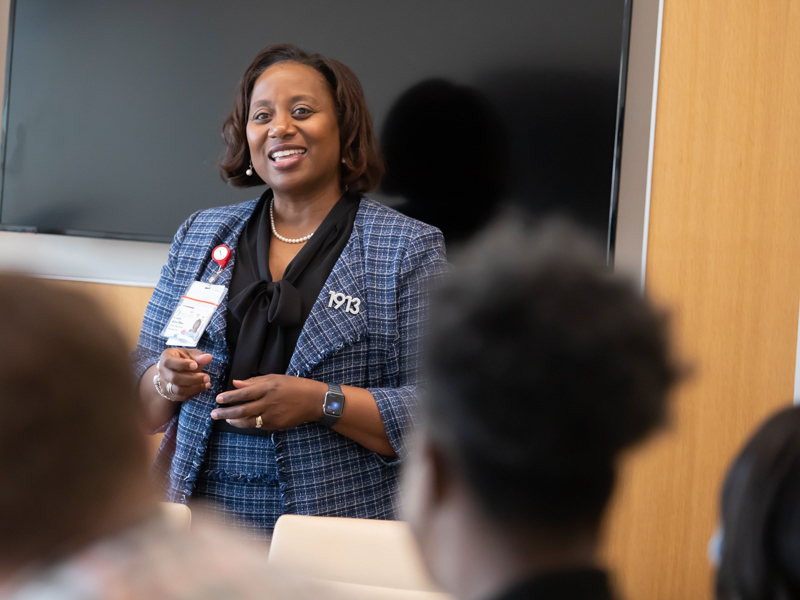
“I know these scholarships are personal for you,” Jackson-Williams, professor of emergency medicine and vice dean for medical education, said, addressing the students.
“But what they are ultimately about and what I’m really excited about is the long-standing impact these scholarships can have on a community.
“Mississippi has a significant rural population with a significant gap in primary care. For the last several years the state has been near or at the bottom for the number of primary care physicians per capita.
“We are generationally behind, and it’s going to take a long time to fill that gap.”
The scholarships are one potential gap-filling measure – a way to persuade more medical students to devote several years of their imminent careers to doctor-deprived locales.
They are made possible by a four-year, $7.6 million grant awarded in 2020 to the School of Medicine through the program, IMPACT the RACE: Improved Primary Care for the Rural Community through Medical Education, supported by the federal Health Resources and Services Administration (HRSA).
The awarding of these eight scholarships is just one way the school is using the IMPACT grant to influence the future of primary care in the state.
Offered to third- and fourth-year students, the scholarships were awarded based on their stated desire to practice rural medicine, their commitment to a rural area, their letters of recommendation from physicians, and much more.
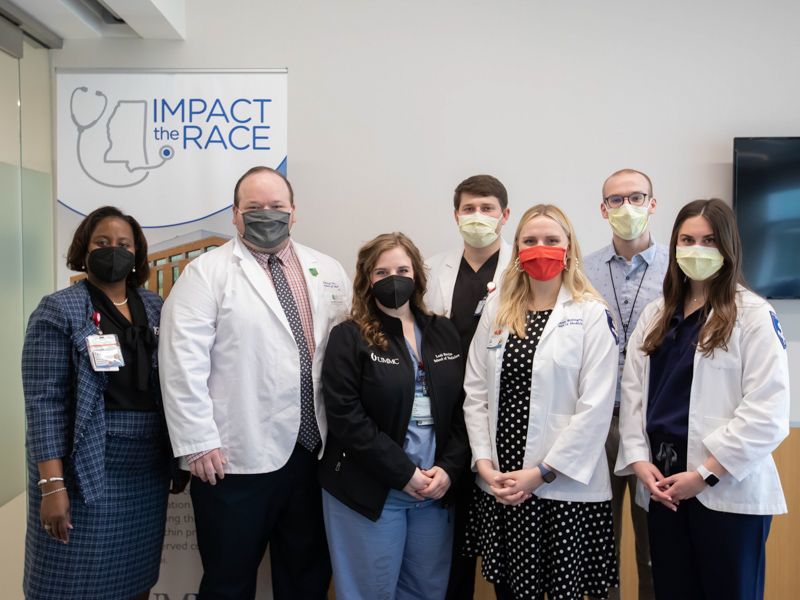
“The obligation of these students is to practice primary care in a rural area for five years,” said Rakesh Patel, project manager in the School of Medicine.
“We followed the model of the Mississippi Rural Physicians Scholarship Program.”
In fact, some of the students are Rural Physicians Scholars as well. That means their commitment to rural patients has approximately doubled. Bowlin, who is among them, has promised a total of nine years. She will consider them well-spent.
When she was in high school, Bowlin shadowed a family medicine doctor in Mendenhall, Dr. Chip Holbrook, and, later Dr. Katie Patterson in the Delta town of Indianola. She learned how much their patients needed them, and that informed the type of physician she wants to be.
“When I was growing up, Dr. Holbrook was all we had,” Bowlin said. “But it didn’t matter how many patients he had left to see, he took the time to sit down with every one and spend time with them.
“He made them feel they were important. And they were.”
But Bowlin was also affected by what she didn’t see. “We didn’t have an OB-GYN close by. So I saw what it was like not to have access to women’s health care,” she said. “That’s the picture for a lot of Mississippi, and that frustrated me.”
Her career choice will relieve some of that frustration; wherever she practices as a physician, in whatever small town, there will be at least one OB-GYN around.
For his part, while growing up in New Albany, Alef had role models, too, including a family medicine doctor who happens to be the grandfather of one of his best friends.
“It was great to be able to watch him and other physicians at work in my hometown,” Alef said, “but even more impactful than that was watching them out in the community.
“A lot of them I went to church with and saw them at Friday night football games. So I’ve always known that no matter what field I go into, I had a desire to go back to New Albany and be a pillar in the community, like my friend’s grandfather.
“There’s a lot to be said about being a doctor in a rural area or small town; you are a respected figure and, at the same time, a friend and companion, somebody everyone can depend on.”
Impact the Race scholarship awardees
Joseph Riley Alef, New Albany, M3
Lauren Billington, West Point, M4
Leah Bowlin, Mendenhall, M4
Katherine Cranston, Jackson, M4
Olivia Grant, Gulfport, M3
Daulton Newman, Eupora, M4
Christopher Turley, Hattiesburg, M3
Austin Urvina, Corinth, M3


